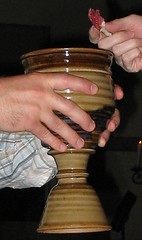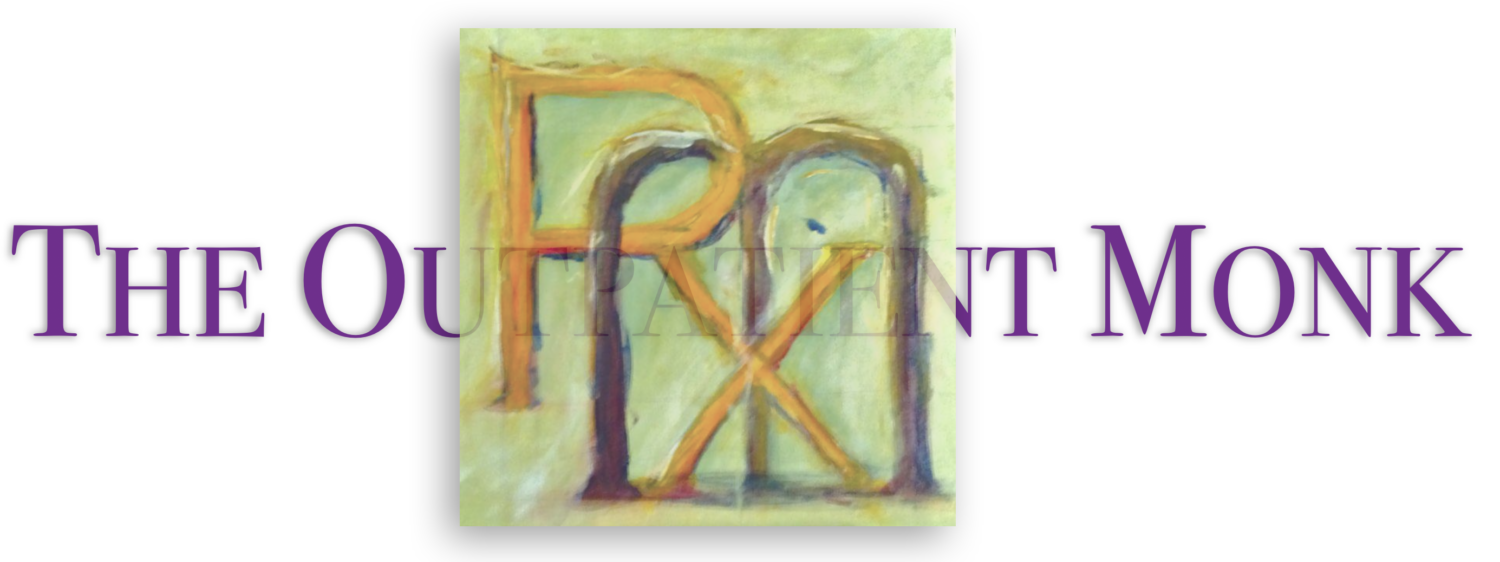
Today my FaceBook feed is wrought with variations and recollections of the event of September 11th from twelve years ago. The personal recollections have shrunk from previous years and some simply share a photo or state, “Never forget.” Seeing that phrase repeated over without more context has begun to trouble me, and not just a little. What is “never forget” supposed to be shorthand for on this kind of anniversary?
On one hand I think it is referring to a kind of remembering that simple tries to honor those who have suffered, especially the handfuls of people who were not merely victims, but heroes who sacrificed themselves for others. It is good to remember heroic lives. There are, however, other kinds of remembering too, which may be mingled in there as well. Some ways of remembering may be the very spiritual disciplines of a never ceasing war. It strikes me that the real challenge we face is is not just to remember, it is learning how to remember, how to tell the story in such a way that is about speaking the truth, but it is also about speaking the truth in love.
Rather than just saying, never forget, we must also say, “Learn from history.” In fact I considered posting that as a status today, but immediately realized that it would appear to many of my followers and friends that I was “trying to be political,” (by which I think people would mean partisan) about contemporary events. Which in some way, I am, just not directly.
“Learn” is a much more morally complex word that “remember,” or “forget.” It means there are better and worse ways to tell this story and that when we do something about the way we live our lives must change. “Learn” is not the language of the tragic victim who refuses to cease suffering and therefor feels entitled to continuously lash out at the rest of the world. “Learn” means something else is possible and we have the ability to play a role in it.
If 9/11/2001 is all a story unto itself, we are doomed and we live a world thrown far from God, ferrel and spiraling till we achieve maximum bloodshed one eye for an eye at a time. Either remembered or forgotten, if the events of that day are “just something that happened,” we are most at risk to not only see it happen again, we are capable to reproducing the circumstances ourselves. “Those who do not learn from history, are destined to repeat it, ” is not merely the admonition of high school history teacher, it is a truth about the cycle of violence that gets passed down from generation to generation even with a single family line. One can remember getting beat as a child in a way that only makes one want to beat up the world. That is not a good story to be telling.
We can remember in ways that still help the terrorists win. If 9/11 becomes the official start date of endless war, they win. If it is the beginning of a new fabricated division between the Muslim east and the Christian west, the terrorists win. Depending how long and in what ways we tell the story with self righteousness and vindication, we eventually have to stop saying “they,” when we say terrorists. We can become what we hate. That is one way to tell a story.

I have to learn to tell this story in light of the Christian narrative which says the world was born from love and spiraling toward Love. It is a story which begins and ends in death and resurrection of the willing victim who forgave his own murderers. This is not the balanced thinking of the therapist or conflict resolution guru who wants us to see that there are two sides to every story. This is a story that says, even if the wrong was entirely one sided, I refuse to allow that wrong to define either of us. That is a message of hope, but it is a hope that is born of sacrifice. And it is a story worth trying to work out. It is a story we retell every Sunday when we walk up to the table and are made one with that willing victim who triumphed over death and hear him say, “Do this in remembrance of me.” Never forget.
The only way we win is to now build such lives of hope and compassion that such an act of violence makes absolutely no sense to our imaginations. “What a silly way to try to change the world,” we will say. “Why on earth would people do such a thing?” Our kids will ask us. ” Because they were wrong about what humans can do and become,” we will answer.
Forgiveness does not forget, it does not pretend no wrong has happened or trivialize any event into, “something that just happened.” Forgiving is not the same as forgetting, in fact it is the opposite. It is re-membering, it tries to make pull things back together, to belong to each other. Forgiveness does not forget but it also does not sit and pick at its own scabs till it bleeds to death. So what does forgiveness do? It tells the truth, it calls out the names of those who have died… all of them…. from every country, but then it turns and looks away from the past. Forgiveness moves forward rather than staring backward.
So when you say, “never forget.” I am simply asking Christians to hear “Do this in remembrance of me.”



“One can remember getting beat as a child in a way that only makes one want to beat up the world.”
There are certainly many who can relate to this in a very personal way, even if it is a metaphor to global relationships. Just as much as an individual is unaware that the damage to their adult life has a direct relationship to prior hurts that s/he has buried and seemingly forgotten (no pun intended).
“We can become what we hate. That is one way to tell a story.”
I recently read during my personal devotional time an excerpt of Carlo Carretto’s “Letters from the Desert.” Coming out of my “A Call to Prayer” for pastors and spiritual leaders, Carretto states that “To triumph over the sickness of victimisation, I must go beyond it…and toward those whom the short-sightedness of my eyes sick sees as the cause of my evils.”
First, while I do not tend to suggest that the United States relies primarily on a “victim” mentality, I do feel that the victim mentality is a strong informant on our foreign policy to date.
Second, to synthesize these two sentences which I drew from your blog entry, we must identify with honesty our real wounds so that we can promote healthful “remembering.” Furthermore, as Christians of U.S.A. nationality, we have to face our fear (that may imply confronting fear-full propoganda) which merely polarizes people.
Finally, one example of failure to heal properly is the notable FaceBook memes that have circulated with the message of “present day minutemen” versus (apparently, all) “Muslims.” Furthermore, the proper pathway of healing might require a step into the very place that we fear most– that is, to show love to our neighbors (as you shared in the language of Eucharistic community) without regard to our potential fear against them.
As a veteran of Celebrate Recovery will say, I am defined by Christ, not by my faults or hurts. Perhaps the U.S.A. may benefit from its own 12-Step Recovery? But again, perhaps we all do.
Well said.